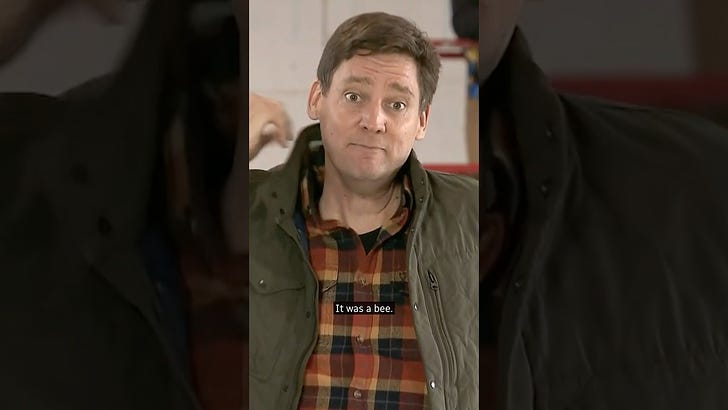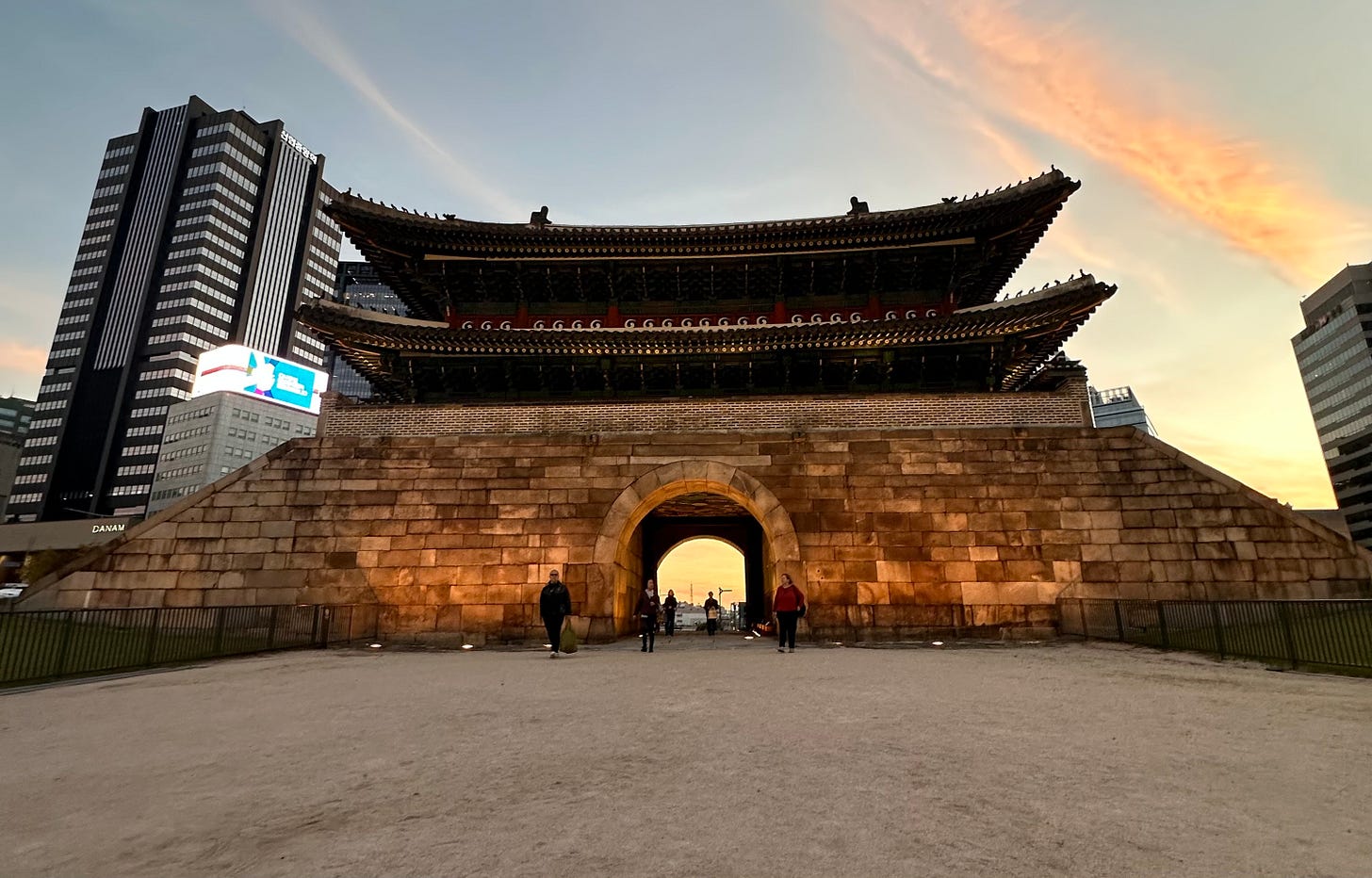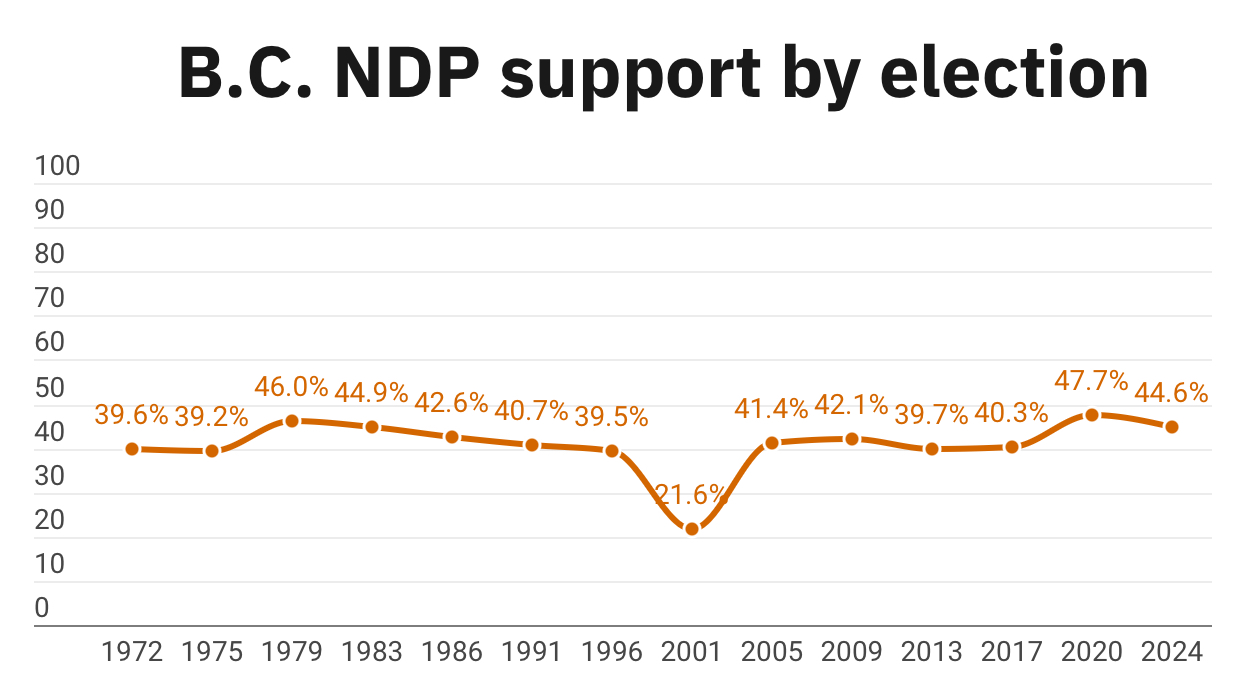10 thoughts about the B.C. election
In Which I Write About What Information Got To Me Halfway Around The World, And What Things Seem Worthwhile To Mention In Its Aftermath
1. For my entire professional life, I’ve spent election days in British Columbia deeply involved in putting together news coverage about provincial, local or federal results, telling people who won and why it mattered.
Given my interests, skillset, and aversion to change, I’ll probably do it for the rest of my professional life.
Except for today. Today, I was in the capital of South Korea, wandering mountains and learning about their people’s history.
2. When (white, male) British Columbians first got the right to vote, South Koreans were still being ruled by a 600-year dynastic kingdom. When we developed a political party system, they were under the colonial rule of Japan. When we elected our first populist party to power in the 1950s, they were fighting a horrific civil war that divided North and South.
When that populist party won its last election in 1986, they were under a de facto military dictatorship, still in the shadow of the assassination of a former president and a year away from their transition into the stable democracy that has held since.
Our political history is one of giant privilege. Sometimes we have a funny way of showing it.
3. I could appear back in B.C. four months from now, make a silly joke asking folks what I had missed, and never really analyze this election, or give people a sense of what I thought about it (truth be told, my bosses would probably prefer that).
However, if you know my journalistic values, you know I care about being transparent with audiences, and giving folks a sense of where my head is at with things.
Plus, I think I have a pretty unique perspective on this election. On one hand, I know B.C. politics like a fish knows water. On the other hand, for the past seven months I’ve mostly gotten my information from occasional glances at the news, things my friends send me on social media, and random group chats.
You know, like a regular voter.
So here’s what I found interesting. Maybe you’ll find it interesting too.
4. Is something “historic” if it happened for the second time in seven years?
Much like 2017, it’s an election night with no majority, all eyes on mail-in ballots to be counted a few days from now, and the Green Party holding the balance of power.
Because of 2017 though, we all have a pretty good idea of the scenarios ahead of us — particularly if the rhetoric of Green Party leader Sonia Furstenau towards the Conservatives is indicative of where their two MLAs sit.
David Eby continues to be premier until he’s not premier, and continues to hold the right to recall the legislature, test its confidence, pass bills, yadda yadda yadda.
To what extent the Greens decide to support the NDP would help determine how long there would be until another election. In the short-term though (say, through the end of a new budget and spring legislative session from February to Mayish), Eby’s premiership would be secure.
If one of Juan de Fuca-Malahat or Surrey City Centre flip to the Conservatives, he can still do that, although unless there’s somehow another Darryl Plecas in the Conservative caucus, the risk of a hung legislature requiring another election is extremely high.
If both flip to the Conservatives, Rustad would have a majority, but the part would also run into the challenge of finding a speaker from the opposite side of the political spectrum to pass legislation with.
Lots of people will write lots of things about this over the next week, but those are the general beats and they’ll play out how they play out.
5. From halfway around the world, the entire election seemed to be about the Conservative Party. I heard about their surge in the polls. I heard about their candidates that got into hot water and/or called Palestinians “little inbred … time bombs.” I heard about their plastic straw promise and rent and mortgage rebate and their lack of a platform for most of the campaign.
People had many thoughts about the Conservative Party, and enough of spilled over to the general conversation that I heard some of it.
I did not hear a single thing directly about the party that had governed British Columbia the last eight years.
Honest to god, I could not tell you a single promise they made to better the lives of British Columbians. I could not tell you a single argument they made about why their rule of the province had been beneficial.
Actually, that’s not true. I did hear about David Eby getting stung by a bee.
6. You might think is a tad hyperbolic, and also wondered if maybe I was getting too narrow of a view. Maybe there were big promises made by the NDP, or arguments the NDP made about their own governance that were breaking through, just enough for me to be aware of them. So I asked on Reddit what were the most noteworthy things about the election, and got more than 100 responses.
The only answer with a lot of upvotes that really involved the NDP?
That darn bee.
It knows how to get a message out.
Maybe it should be added to the government’s communication’s team.
7. Here is a chart.
That’s the NDP’s percentage of votes in all 14 B.C. elections since 1972. It went down in their 2001 collapse, went up in the previous election, but otherwise has always stayed between 39 and 46 per cent.
Do you know how remarkably stable that is? I think you’d be hard pressed to find any major political party in the world who have had that consistent level of support with such minimal deviation for so long.
Of course, there’s a flip side to this — for 50+ years, they’ve had a pretty firm ceiling on their support, and except for 2020 had never won a majority without vote splitting from parties to the right of them on the political spectrum. As a result, the dominant non-NDP party has ran the province most of the time.
2020 did happen, of course, and result made it seem like B.C. could have been on the verge of a major political realignment, with the NDP replacing centre-right parties as the dominant governing force in the province.
That didn’t happen though. Why?
8. Here’s I ended my column on election night in 2020.
“Now, B.C. has its first two-term NDP premier; Vancouver has had a centre-left mayor for 15 of the past 18 years; and most B.C. MPs are from the Liberals or NDP.
It's a province that has slowly but surely moved to the left in recent decades. Now it has a premier with more political capital than any NDP government in a generation, with eager partners in Ottawa and B.C.'s biggest cities.
The next question is what will John Horgan do with it.”
Turns out the answer was “not much!”
In their first term in office, the NDP did a lot of big things. In their second term, the NDP expanded on a lot of those same things, did a U-Turn on decriminalization and autism funding and a new museum, and otherwise kept it pretty status quo.
If you want, you can write off 2021 and most of 2022 due to the government in pandemic mode and Horgan resigning.
But David Eby spent the last two years trying to show British Columbians that he could run a competent government, eschewing chances to call an election in early 2023 when they were handing out billions of dollars from the previous year’s surplus, or in early 2024 when they faced a divided opposition.
Which was a choice.
So after all that, what specific new accomplishments did he run on?
This isn’t a rhetorical question, I’m asking because, once again, the only thing I know is that he got stung by a bee.
(Incidentally, there were a lot of John Horgan supporters who were extremely lukewarm on David Eby and wanted Ravi Kahlon to run due to worries over whether Eby had the charisma to sell the NDP’s agenda. I’m wondering what they’re thinking tonight.)
9. Given the lack of big new policies to run on, and the size of the deficit, and the fact that housing prices haven’t gone down, and the fact that rents have skyrocketed up, and the fact that discourse around crime/safety hasn’t particularly changed since 2021, you can see why the NDP campaign focused on the Conservatives, whether they were ready to run the province, and the views of John Rustad and some of his candidates.
Some people call this the “Americanization” of B.C. politics or make references to Donald Trump, but I dunno folks, I’m going to country to country and the cultural battlegrounds and rhetoric towards the establishment is pretty similar all over the place.
What seems clear is that NDP’s strategy didn’t seem to have much of an impact on voters. And it also seems clear that across the world, short of doing widespread and tangible candidate removal and endorsement like in France, there seems to be pretty minimal returns on this sort of persuasion tactic.
something something Maslow’s hierarchy of needs.
10. Tomorrow I’ll go back to looking at museums and ruins and cool cities and contemplating the breadth of humanity. After dipping my toe into things for the last week, it’ll be nice to once again be out of the hotbox.
Before I do that though, here are two things I’ll keeping tabs on over the next few months, regardless of who forms government.
For the Conservatives, how do they transition from being a movement to a political party with a tangible caucus?
It’s a caucus with former BC Liberal MLAs, people with long CVs that wouldn’t have looked out of place in any BC Liberal caucus in the last 30 years, the type of populists and libertarians that have a long history in this province, and people who have shown a propensity to get very angry on Facebook for all sorts of reasons.
Which voices become dominant? How much influence does their board have when the caucus is 40 people instead of a couple? Do we ever hear from Brent Chapman again?
And as for the NDP, I wonder if — or how — David Eby is going to pivot.
After the last election, the party had a giant mandate and tons of political and fiscal room to maneuver. Today, if they survive, they’re looking it being one or two votes away from an election, big deficits forecasted, a soured mood among the electorate, having already changed course on decriminalization and the carbon tax, waiting for their housing reforms to have a measurable impact on supply, and the strong possibility of a new federal government soon that will be a heck of a lot less simpatico with them.
Nobody knows what will happen next.
But what a difference four years can make.







They could have run a better campaign, but I think the biggest issue is how risk averse they were until Eby took over. He introduced two of the biggest changes in housing (zoning) and healthcare (new GP contract, new medical school) but those changes take time to materialize.
When people are frustrated they want change. Even if that "change" is just a catchy slogan
Excellent summary, Justin. It’s why so many of us miss you on election day!
My first thought was that it’s slightly surreal that the Greens could have the balance of power while the largest party is led by a climate change denier.